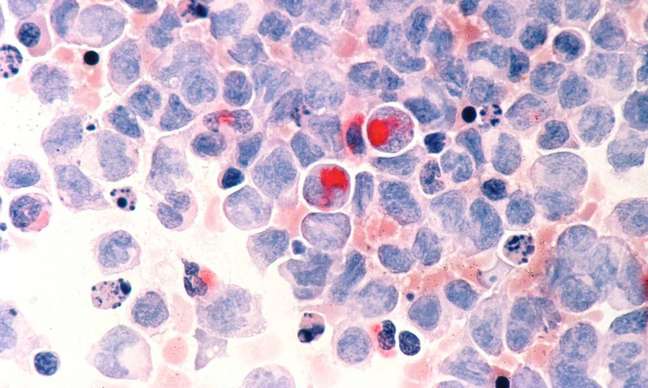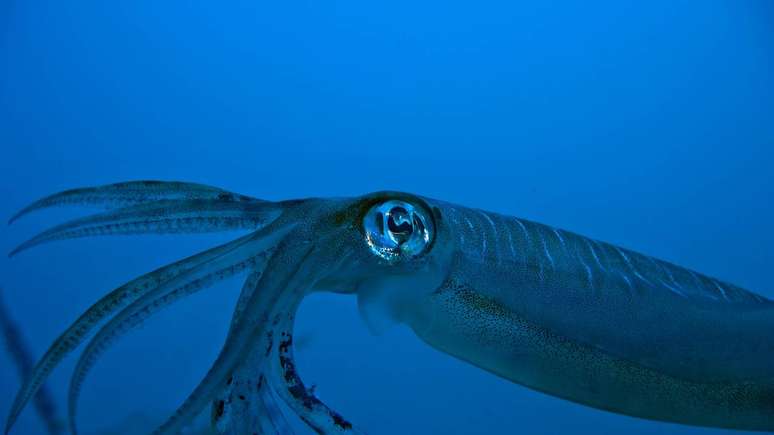Leukemia and lymphoma therapy is the first of its kind available to patients; new clinical research tests treatment with genetically modified cells also for myeloma
One of the most promising types of treatment against cancer has had, in recent weeks, its first product launched on the Brazilian market and two pioneering clinical trials launched in Brazilian institutions. It’s about the call CAR-T cell therapyin which the patient’s own lymphocytes are collected, genetically modified and then reinserted into the patient’s body to act in recognition and fight the tumor.

CAR-T cell therapy is one of the main promises against cancer because it uses the patient’s own defense cells and reprograms them to attack a specific target – the cancer cells -, making the treatment personalized and potentially more effective.
The first product to reach the Brazilian market was approved by National Health Surveillance Agency (Anvisa) in February this year, but it was actually available to patients only this month, after the pricing process of the therapy, conducted by the Chamber of Market Regulatory Medicines (CMED) and carried out only after the registration granted by Anvisa .
The product, developed by the Swiss pharmaceutical company Novartis, is indicated for children up to 25 years of age with B-cell acute lymphoblastic leukemia who have not responded to standard treatment, including bone marrow transplantation. It can also be used in adult patients with diffuse large B-cell lymphoma who have failed to respond to two or more lines of treatment or who have relapsed after standard therapies.
“It’s a breakthrough in the power of the treatment, a less aggressive option than chemotherapy, for example, and more effective. In studies, it has doubled the chance of tumor remission compared to the best treatment we’ve had so far for these patients.” , says Marco Aurélio Salvino, professor of hematology at the Federal University of Bahia (UFBA) and coordinator of the Cell Therapy Unit of the São Rafael Hospital, in Salvador, one of the centers that participated, together with the Albert Einstein Israelite Hospital , to product studies in Brazil.
While it offers hope for leukemia and lymphoma patients who have not fared well with existing treatments, cost can be an impediment to accessing innovative therapies. According to CMED, the treatment can cost up to BRL 2.1 million per patient.
There is no forecast of when the treatment will arrive at SUS, but it could be funded by health plans as it is an anticancer therapy for use in a hospital setting. While it’s not on the National Integrative Health Agency’s (ANS) list of procedures, some patients are already having their health plans approve it for use, according to Salvino.
Hospitals begin study of CAR-T against myeloma
In parallel with the first CAR-T therapy coming to market, last week three Brazilian hospitals began participating in a global Phase 3 clinical study (the most advanced within a research) of another CAR-T product, this developed by the Belgian pharmaceutical company Janssen and indicated for the treatment of multiple myeloma, cancer that affects cells in the bone marrow and which, although it has been treatable and controllable for years, still has no cure. The main innovation of the study, according to the researchers, is to test the anticipated use of the product.
“The CAR-T cell therapies approved or tested so far in Brazil were for people who had already undergone several other treatments, i.e. with advanced disease. In this study for myeloma, CAR-T is being brought almost as a first-line treatment, for evaluate whether the response will be even better than that observed for relapsed or refractory patients,” explains Nelson Hamerschlak, coordinator of the hematology and bone marrow transplant program at Einstein, one of three Brazilian centers participating in the Janssen’s global footprint study, alongside the ‘São Rafael Hospital, in Salvador, and at the AC Camargo Cancer Center, in São Paulo.
For cases of refractory or relapsed patients, as said by the specialists, the product had already been approved by Anvisa in April and is now awaiting pricing by CMED.
“In the multi-treatment refractory or relapsed patient scenario, the treatment response rate was 98%, but the problem is that we know the disease comes back after a while. Now, with this new study, we want to see if, with an earlier administration, this response can last longer,” says Jayr Schmidt Filho, leader of the Hematological Malignancies Reference Center at AC Camargo.
“The expectation is to find a cure for myeloma with this therapy. It would be a paradigm shift,” completes Salvino, of the São Rafael Hospital. She says the study results should be out by 2025.
In the research, patients are divided into two groups: one of them receives a triple therapy known as VRD and follows in maintenance with the same class of drugs. The other group receives VRD followed by CAR-T cell infusion.
“The study is aimed at myeloma patients who are ineligible for bone marrow autotransplantation, which would be the first treatment option. Usually they are elderly patients or patients with some chronic disease, who cannot tolerate autotransplantation or choose not to” explains Lucila Nassif Kerbauy, a hematologist and transplant specialist at Einstein.
The first patient in the group to be treated with the genetically engineered cells underwent a CAR-T infusion last week at Einstein. The second patient was treated on Monday 28 at the AC Camargo. The next infusion will be done at São Rafael hospital next week. Participants from Brazil have their lymphocytes collected at hospitals participating in the tests. The cells are then sent to the laboratory in the United States, where they undergo genetic intervention.
“For the genetic modification, a laboratory-developed virus is added whose sole purpose is to enter the lymphocyte’s DNA and make it express a receptor on its surface that will recognize the BCMA protein, expressed on the surface of cancer cells. when reimplanted into the patient, recognize and attack myeloma cells,” explains Schmidt Filho. Around 650 patients worldwide are expected to participate in the study.
Einstein develops his own CAR-T therapy
In addition to being one of the centers participating in global studies with CAR-T cell therapies developed by large pharmaceutical companies, Einstein is also active on another front, that of the development of its own CAR-T products. According to Hamerschlak, Anvisa approved two months ago a phase 1 clinical trial of a CAR-T cell therapy developed by researchers at the institute and indicated to treat patients with B-cell lymphoma and leukemia.
According to the researcher, if the trials are successful, they could pave the way for a more affordable innovative cancer treatment option. “It is an academic product developed here. In terms of price, it will cost 10% of a commercial CAR-T. The project was carried out for SUS, through the approval of a Ministry of Health research line through the Support Program and Institutional Development of SUS (Proadi-SUS).If we can get this product and offer it to SUS, it will be a huge step forward,” he explains.
🇧🇷The best content in your email for free. Choose your favorite Terra newsletter. Click here!
Source: Terra
Ben Stock is a lifestyle journalist and author at Gossipify. He writes about topics such as health, wellness, travel, food and home decor. He provides practical advice and inspiration to improve well-being, keeps readers up to date with latest lifestyle news and trends, known for his engaging writing style, in-depth analysis and unique perspectives.





![A Better Life Preview: What’s in store for Tuesday, October 21, 2025 Episode 446 [SPOILERS] A Better Life Preview: What’s in store for Tuesday, October 21, 2025 Episode 446 [SPOILERS]](https://fr.web.img6.acsta.net/img/fe/c7/fec79870332faf9ba9cf244248ec57c8.jpg)


